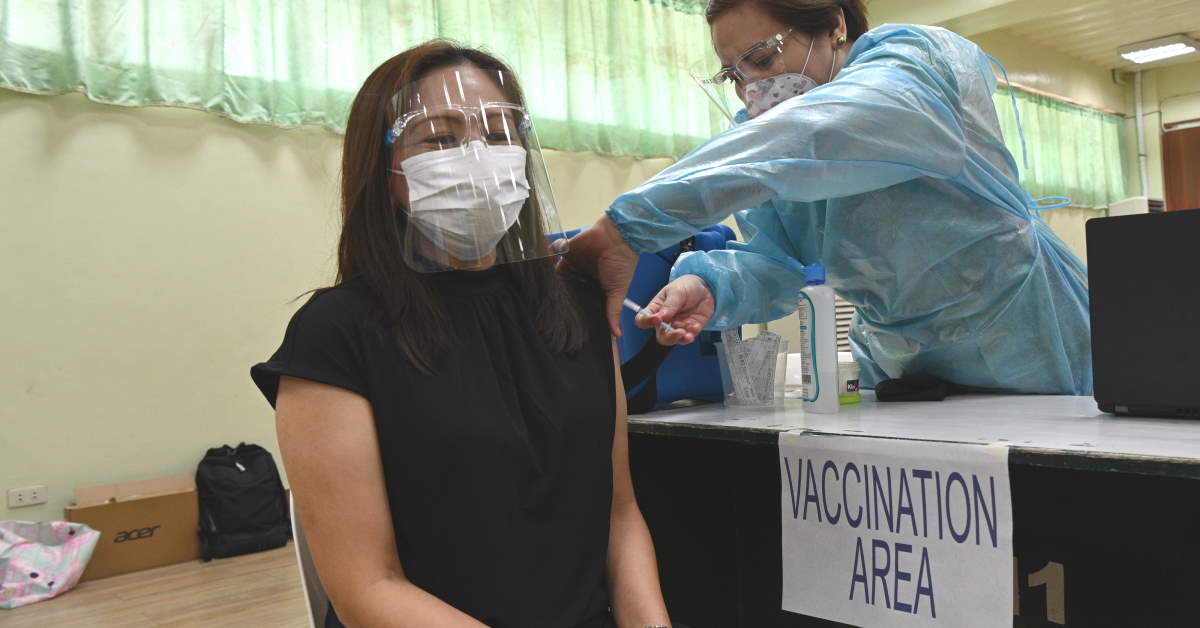From keeping coronavirus vaccines cold in tropical temperatures to ensuring they reach remote islands; a top drug distributor is gearing up for major challenges in shipping shots across Asia.
Only a few countries in the region, which has generally not been as badly affected by COVID-19 as many parts of the West, have started inoculation drives in earnest.
But campaigns are expected to be ratcheted up in the coming months and distributors will face a major test.
One of Asia's biggest is Zuellig Pharma, which has about 85 warehouses across the region that can store vaccines at ultra-cold temperatures and a well-developed distribution network.
Of paramount importance is "cold chain storage" – ensuring vaccines are kept at low temperatures while being produced, flown overseas, stored in warehouses and sent to hospitals and doctors' offices.
"Cold chain storage for vaccines is extremely important first and foremost for patient safety," Tom Vanmolkot, the company's executive vice president for distribution and client services, explained.
"We cannot administer vaccines that have been outside of the cold chain," he added, during a visit to their warehouse in Singapore, one of the few Asian countries that has started its inoculation campaign.
This is particularly tricky in some countries such as the Philippines, Indonesia and Cambodia where temperatures often soar above 30 degrees Celsius (86 degrees Fahrenheit).
The Pfizer-BioNTech vaccine needs to be stored at minus 70 degrees Celsius (minus 94 degrees Fahrenheit) and once thawed for use can be kept at two to eight degrees Celsius for five days.
Meanwhile, United States (US) firm Moderna's shot is stored at minus 20 degrees Celsius and those of Chinese company Sinovac at two to eight degrees.
Biggest Challenge
Zuellig Pharma, which has its regional headquarters in Singapore, has developed special boxes to transport the vaccines and keep them cool, which contain devices that record the temperature and ensure the "cold chain" is not broken.
They have fleets of vehicles for transportation and are working with governments to make sure they reach their destinations on time.
But the geography of some countries – such as Indonesia and the Philippines which are vast, poor archipelagic nations – can make it tough to distribute jabs while ensuring they remain effective.
The two countries have "thousands of islands – we need to make sure that those vaccines get to those islands as well," Vanmolkot said.
Handling COVID-19 vaccines is the company's biggest challenge so far because of the volume of doses needed and the duration of the pandemic, he said.
Distributing flu vaccines every year also involves shipping a large number of inoculations in a short space of time. But this usually takes a few weeks, while the distribution of COVID-19 shots will take months, he said.
One of the immediate challenges Zuellig Pharma faces is uncertainty. They don't know what shots will be approved in different places, when they will arrive and in what volume.
"So, we are preparing ourselves for something that is big, that has to go fast – but we don't know exactly what those volumes are and the temperature ranges," said Vanmolkot. – AFP
